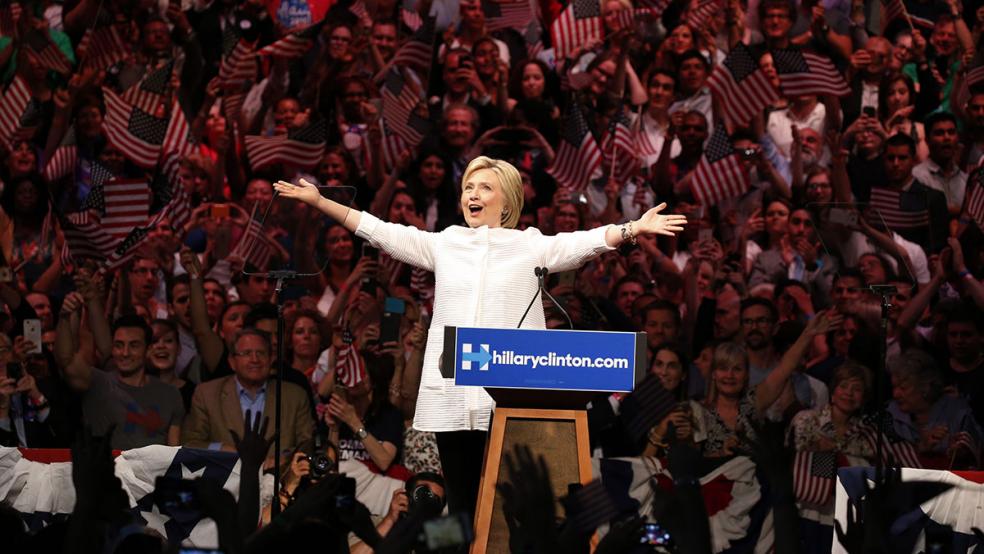It's uncommon for stocks to hit new highs in August, but when they do so during a presidential election year, the contest has been a blowout since 1950.
The last four times the S&P 500 has hit a new high in August during an election year, the victor won in a landslide. That insight comes from Art Cashin, director of floor operations at the New York Stock Exchange for UBS, and was confirmed by CNBC.
Related: Why It May Be Time to Buy the Stock Market’s Losers
History could be poised to repeat itself with the S&P having struck a number of new highs this month, most recently hitting an intraday high of 2,193 and a closing peak of 2,190 on Tuesday.
"It's very rare to make new highs in August to begin with, and when you've done that in an election year, whoever won took 30 or more states, so that will lead to the idea that however this comes out, it might be a landslide," Cashin told CNBC's "Squawk on the Street."
Right now, the electoral math favors Hillary Clinton. According to the latest NBC News battleground map, 24 states and the District of Columbia are either likely to vote Clinton/Kaine or lean toward the ticket, giving the Democratic candidates 288 electoral college votes.
NBC News lists six states as toss-ups, with 76 electoral college votes up for grabs.
Related: Everyone's Ignoring This Huge Threat to the Global Economy
The last time August highs overlapped with a landslide was in 1992, when Bill Clinton won 32 states to George H.W. Bush's 18. That year, the S&P hit a high of 425 in August.
The previous instance of an election-year August high occurred ahead of the 1980 contest between Ronald Reagan and Jimmy Carter, when Reagan took 44 states.
Interestingly, that year also featured a contentious GOP primary battle ultimately won by an outsider candidate to whom many in the party establishment were initially hostile. The 1980 Democratic primary, like 2016, also saw a northeast U.S. Senator — Ted Kennedy — challenge an unpopular party colleague, the incumbent Jimmy Carter.
Prior to that, stocks hit new highs in August ahead of the 1972 election, when Richard Nixon won all but one state over Democrat George McGovern, and the 1956 contest, in which Republican incumbent Dwight D. Eisenhower bested Adlai Stevenson in 41 states.
On Tuesday, Morgan Stanley said the market appears to be pricing in only incremental policy changes on the view that Clinton will take the White House and Republicans retain control of Congress.
While Clinton is currently leading in the polls, the prevailing view is that Donald Trump has until the debates to "right the ship" and come across as credible, Cashin said. A damaging email leak in October could still upset Clinton's chances, he added.
Emails released amid investigations into Clinton's use of a private server have provided fodder for her critics. Meanwhile, communications among Democratic Party officials made public by hackers and WikiLeaks have embarrassed officials and forced the resignation of Democratic National Committee Chair Deborah Wasserman-Schultz.
This article originally appeared on CNBC. Read more from CNBC:
Trump campaign denies ousted Fox News head Ailes is helping with debate prep
5 great entry-level jobs for recent grads
CIO of $350 billion portfolio: Central banks 'don't give a darn' about retirements




